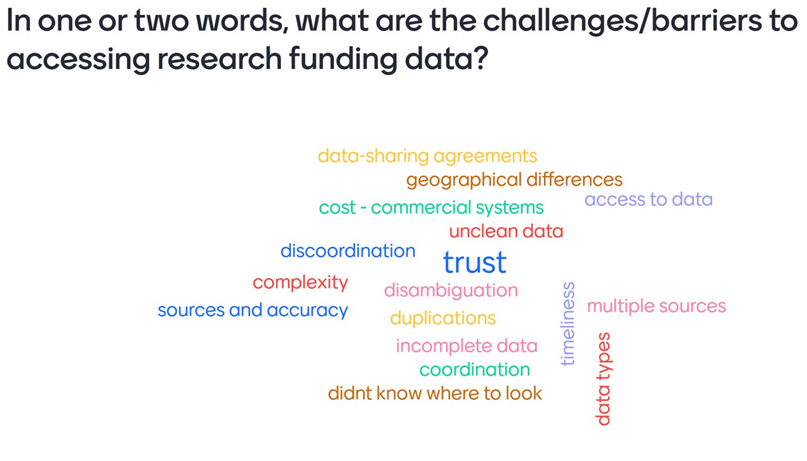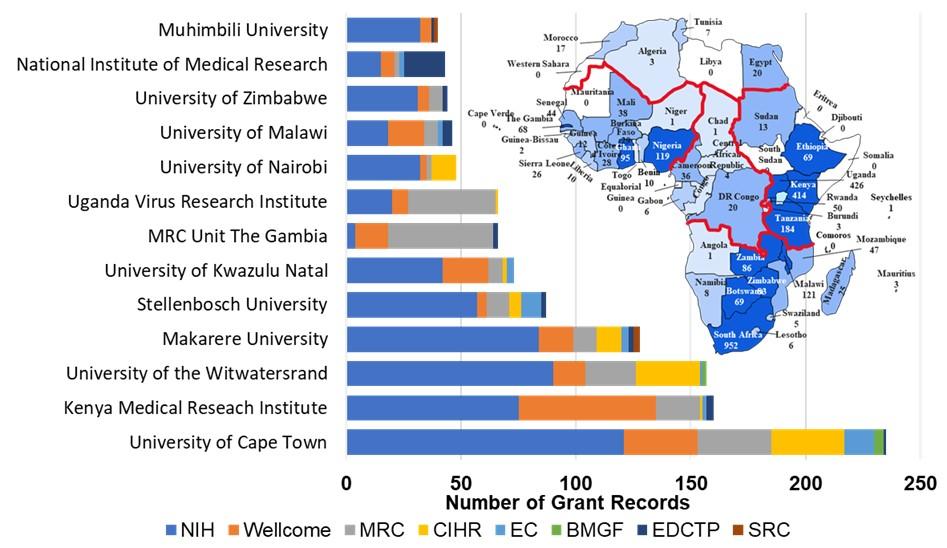LGCW 2022: Utilizing Cancer Research Funding Data to Inform Action and Drive Collaboration
, by Leshia Hansen, R.N., M.P.H.
Presenters
Kalina Duncan, Dr.P.H., M.P.H., Chief, Partnerships and Dissemination Branch Center for Global Health, National Cancer Institute
Lynne Davies, Ph.D., Operations Manager, International Cancer Research Partnership
Panagiota Mitrou, Ph.D., Director, Research and Innovation World Cancer Research Fund
Michael Cheetham, B.A., Senior Science Policy Analyst Office of Portfolio Analysis Division of Program Coordination, Office of the Director, National Institutes of Health
Anna Laura Ross, Ph.D., Unit Head, Emerging Technologies, Research Prioritization and Support, Science Division, World Health Organization
Elise Garton, M.Sc., Health Specialist, Center for Global Health, National Cancer Institute, National Institutes of Health
S. Nabeel Zafar, M.D., M.P.H., Lead, Global Oncology Program, University of Wisconsin Carbone Cancer Center
Collaboration among researchers and among research funding partners is essential as we track, share, and utilize global cancer data to drive research, action, and implementation. As part of the 2022 London Global Cancer Week (LGCW), NCI’s Center for Global Health (CGH) hosted a session dedicated to efforts to map and track global cancer research and research funding through the International Cancer Research Partnership (ICRP), Worldview (formerly World RePORT), the WHO Global Observatory on Health Research and Development, and the NCI/CGH Global Oncology Survey of NCI-Designated Cancer Centers.
To give context for these tools, Dr. Kalina Duncan, Center for Global Health (CGH) Branch Chief, shared the 10-year analysis of global cancer research investments. This longitudinal map allowed participants to identify gaps in funding over those 10 years and pinpoint opportunities to strengthen research. Case examples demonstrated how cancer research and research funding data are utilized to inform action and drive collaboration, and a walkthrough of the resources helped participants to understand how to utilize them to develop research questions, find training opportunities, identify funding sources, and connect with potential collaborating partners.
International Cancer Research Partnership (ICRP)
The ICRP includes a database that hosts cancer research funding information from 156 organizations around the world and is searchable by country, cancer type, research institution, and funding organization. Dr. Lynne Davies, ICRP Operations Manager, emphasized that it is available to researchers who are looking for collaborators or for a better understanding of what type of cancer research is happening in their setting. Dr. Panagiota Mitrou, Director of Research and Innovation from the World Cancer Research Fund International, exemplified how a review of the ICRP database showed a gap in prevention research funding, which also facilitated a collaboration with Cancer Australia, another member organization, that led to a notable increase in funding applications and successful co-funding of grants in the area of prevention.
World RePORT/Worldview
NIH hosts Worldview (formerly World RePORT) and Mr. Michael Cheetham, a Senior Science Policy Analyst in charge of this resource, described how it allows users to map cancer research funding, understand who the collaborators are, and how funds are dispersed. A case example was presented by Dr. Anna Laura Ross, Unit Head of Emerging Technologies, Research Prioritization and Support at the WHO Science Division. She oversees the WHO Global Observatory on Health Research and Development which is a source for up-to-date global information and analysis on health research and development. Dr. Ross described how they used World RePORT to scan for emerging technologies and reveal potential health products and research pipelines, which lead to better planning and resource allocation.
NCI/CGH Global Oncology Survey of NCI-Designated Cancer Centers
This Survey of NCI-Designated Cancer Centers was conducted four times over the past 10 years and most recently in 2021. It provides insights into non-NIH funded global oncology projects led by NCI Designated Cancer Centers, and in 2021 the survey gathered data on about 517 such projects. Ms. Elise Garton, CGH Health Specialist running the analyses, illustrated how the results revealed increasing involvement of the centers in global oncology activities, opportunities for innovative research in the field, and further collaboration. Dr. Nabeel Zafar, Lead of the Global Oncology Program at the University of Wisconsin Carbone Cancer Center, reported the impact of these results on the development of their program as he utilized them to establish important connections and leverage support within his institution.
This session gave participants the chance to better understand the global cancer research landscape and tangible ways these resources have been utilized to advance research efforts. One participant, Dr. Akwi Asombang, reflected during the session, “You highlight how critical it is for us to strengthen research and training in LMIC - this will provide us the data we need to guide patient care and policy.”
You can learn more about these tools and resources by watching the full recording of the session and discover how they can help you:
- Identify research gaps to inform new research calls for proposals
- Understand the existing global scientific network
- Facilitate research coordination and collaborations
- Avoid duplication of cancer research activities
- Overcome barriers to accessing research funding data
NCI’s Center for Global Health (CGH) stands behind the idea that cancer research anywhere should benefit people everywhere. The tools and programs presented here can help to work toward that aim as collaboration among researchers and partners helps to drive research, action, and implementation forward across the globe.

